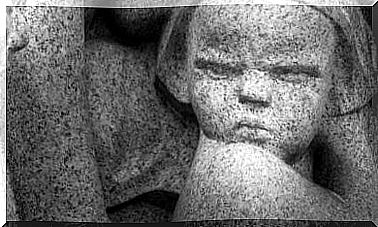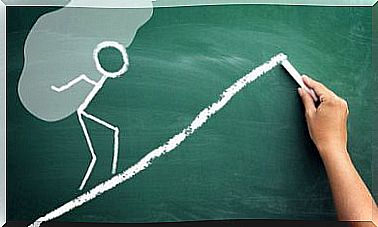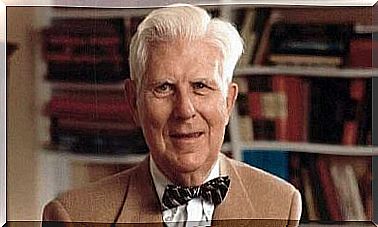How I Got Obsessive-compulsive Disorder

No matter how strange it may seem, one day I decided to experience all the symptoms that one of my patients suffered from. He had obsessive-compulsive disorder. This would give me a chance to get to know him and understand him better. It had also allowed me to put myself in his situation and become more empathetic.
In the text below, I will explain what you need to develop obsessive-compulsive disorder. It can make you smile or laugh a few times. This article can give you some important tips so that you do not develop this type of ailment.
But what does it really mean to have obsessive-compulsive disorder? It is a personality characterized by concern for order, perfection and mental and personal control, which sacrifices one’s flexibility and efficiency.

Aim to aim to get obsessive-compulsive disorder
In order to become this, I had to search for information about the things I need to change about my personality. Until now, I had been a little anxious, but nothing too extreme. The first thing I did was analyze the characteristics that characterize a person with this condition. I therefore looked for information in psychology books, and this is what I found. If I wanted to succeed in having obsessive-compulsive disorder, I had to achieve the following:
- Worry about details, rules, lists, etc. in an extreme way.
- Be such a perfectionist that it affects how I perform my chores.
- Spending too much time on my job, while avoiding personal relationships and free time.
- Be extremely aware and inflexible.
- Not being able to throw away used, useless or insignificant objects.
- Do not delegate tasks to others without getting them to do things my way.
- Have a hapless style with myself and others.
- Be very rigid and stubborn.
To plant the seeds to get obsessive-compulsive disorder
The first thing I did was convince myself that I was perfect and superior to everyone else. This perception led me to an unhappy and painful life, but the moral superiority of being superior to others was sufficient as compensation. Being the youngest child helped a lot. The child who never did anything wrong and who everyone loved and admired. From an early age I became accustomed to knowing what one must do to achieve perfection.
I also had to be very careful with the decisions I made. I always had to think about comparing each factor and consequence so that I did not make the wrong decision. The only problem was that I had to think long before I made a decision. This led to me rarely making a decision or making it at strange times, but this is the core of this ailment.
Above all, I learned to control my emotions: not to cry, laugh or show any form of aggression, not to show fear and never emphasize what I wanted. I could not be depressed by the “lusts of the flesh” and it was best that I hid what I wanted as this was not something I could get. It was better to imagine all the diseases I could develop, count to a hundred over and over again, do everything I could to distract myself or even do the opposite of what I really wanted.
Routine, guilt and cleanliness
Routine would form a part of every aspect of my life. I discovered that I could not spend a day without it. To become more skilled, I collected various things, it could be stamps, coins or simply paper that I had scrawled on. I always had things to do and get chances to lose control. Perfection was within my reach and this was fantastic.
Feelings of guilt are also something I am good at dealing with. It became so important to me that I did everything I could to avoid it. If I did something wrong, I thought about it and analyzed it a hundred times to make sure I did the right thing.
My job was my paradise, but I came home to my own personal hell. A totally clean home ran less of a risk of becoming a chaos (something a person with obsessive-compulsive disorder is unable to see). The material things I acquired were clean and perfect. I kept everything I could and did not throw anything away. Everything seemed like it could be used at some point in the future.

My symptoms of obsessive-compulsive disorder neurosis
My friends got me drunk and made me commit some sins (which I let the reader fantasize about). I was also involved with a woman who was not my official partner. She got pregnant the first time we did not protect ourselves and that was when my fate began. I worried so much about every little detail that I no longer had time for everything. My memory began to deteriorate, and I began to make big mistakes in my daily chores. I knew I could not improvise if I wanted a perfect obsessive-compulsive disorder.
I therefore had no choice but to start verifying everything I did. The doubt led me to verify and increase control. I asked people if I behaved appropriately and got them to start calming behaviors. I kept counting my keys, double-checking the locks and turning off the lights three times to make sure they were turned off.
Impurity, absurdity and medication
I began to think that I was getting unclean, but uncleanness can also be cleansed. So that’s what I started doing. Rituals and more and more rituals where I tested cleanliness and order… When I was unclean, I had no choice but to wash myself over and over again. A series of unclean thoughts arose and I was afraid that they would affect me. I got rid of them through a ritual (I washed myself to get rid of this idea of impurity) or I went on to another thought and it ended up becoming even more absurd than the previous one. This filled me with hesitation and I then had to move on to the next and so on.

My mind swayed from thought to thought, even if I only thought of the most absurd things. As my mind became more and more absurd, I began to think that someone could die because of me if I did not recount things a certain number of times.
I knew there were medications that could help me with this behavior. When some psychologists talked to me about this, I fled the meeting. If I did not do this, I ran the risk that the neurosis would end. I had had to face the difficulties of life, and I had no longer been a role model and I had had to live like an ordinary mortal.
Conclusion…
As you can see, this is a condition that usually begins slowly. The problem arises when it begins to take over your mind and fill it with absurd ideas. Thoughts that lead you to repetitive actions that only create anxiety in the long run.
Now that you have read this fictional story, you will better understand the people who suffer from this behavior. People who really have it tough. You will also be able to prevent it from affecting you.









